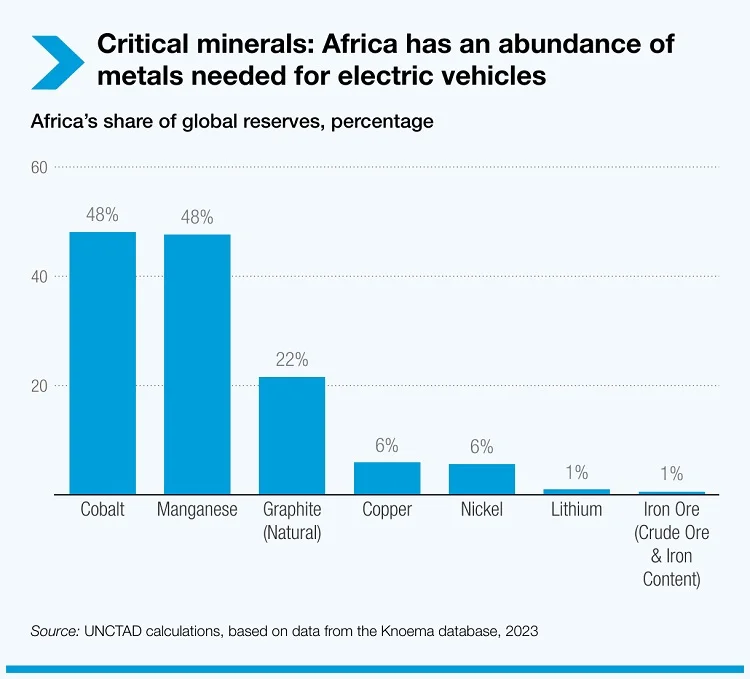UN Trade & Development (UNCTAD) leaders have explored the potential for Africa to become a competitive hub for green industrialisation at an event held in Addis Ababa, Ethiopia
The gathering was a pre-event for the organisation’s 60th anniversary in Geneva, Switzerland, and was held under the theme of ‘Maximising Africa’s Potential: Leveraging Demand for Critical Minerals to Boost Inclusive Growth and Sustainable Development’. Here, senior leaders such as Rebeca Grynspan, UNCTAD secretary-general, made clear how critical minerals will be fundamental to the energy transition and can be catalysts to lift millions out of poverty and create a fairer world. This opportunity is particularly ripe for the African continent, which is home to sizeable reserves of the world’s critical minerals including 55% of cobalt, 47.65% of manganese, 21.6% of natural graphite, 5.9% of copper, 5.6% of nickel, 1% of lithium, and 0.6% of iron ore globally.
However, in order to realise this, Grynspan said the world must break free from the past and reject the extractive model that has kept resource-rich nations dependent and poor. “Instead, we must embrace a new paradigm that prioritises domestic value addition, fosters regional integration and empowers local communities,” she remarked.
A competitive Africa
Antonio Pedro, the UN Economic Commission for Africa’s deputy executive secretary, contributed his voice here, surmising how adding value to critical minerals in Africa could help make the continent a competitive hub for green industrialisation.
“Imagine the potential if African minerals are processed into African batteries, installed into African cars that are driven across the continent and the world,” he commented. “This would accelerate the deployment of renewable energy and the electrification of transport systems on the continent, create decent jobs and make Africa a competitive hub for green industrialisation.”
However, Pedro warned that the mining boom that does not deliver benefits across society “will leave us back at square one” and called for justice and equality in how minerals are harnessed in the global energy transition. He was joined in this sentiment by The African Union Commission’s deputy chairperson, Monique Nsanzabaganwa, who called for the right policy mix and fair international structure and systems – ones that do not threaten African nation’s efforts to increase and enhance beneficiation and value addition as some do currently.
“It wouldn’t make sense to not trust our continental certification systems and instead condition Africa’s minerals to go hit another certification system just to come back to us for value addition or trade among ourselves,” Nsanzabaganwa said.
Seizing the opportunity
According to UNCTAD, African countries generate only about 40% of the revenue they could potentially collect from the sizeable minerals reserves under their feet – a narrative that must change if the opportunity is to be realised.
Amid current global crises, limited fiscal space, slow growth and high debt, African countries need to maximise the financial and development benefits of these resources, UNCTAD advised. Participants at the event in Ethiopia therefore discussed ways to enhance revenue mobilisation and fiscal administration, boost regional value chain integration and increase investment in infrastructure, skills and innovation to support minerals-based industrialisation on the continent while promoting climate action.






















